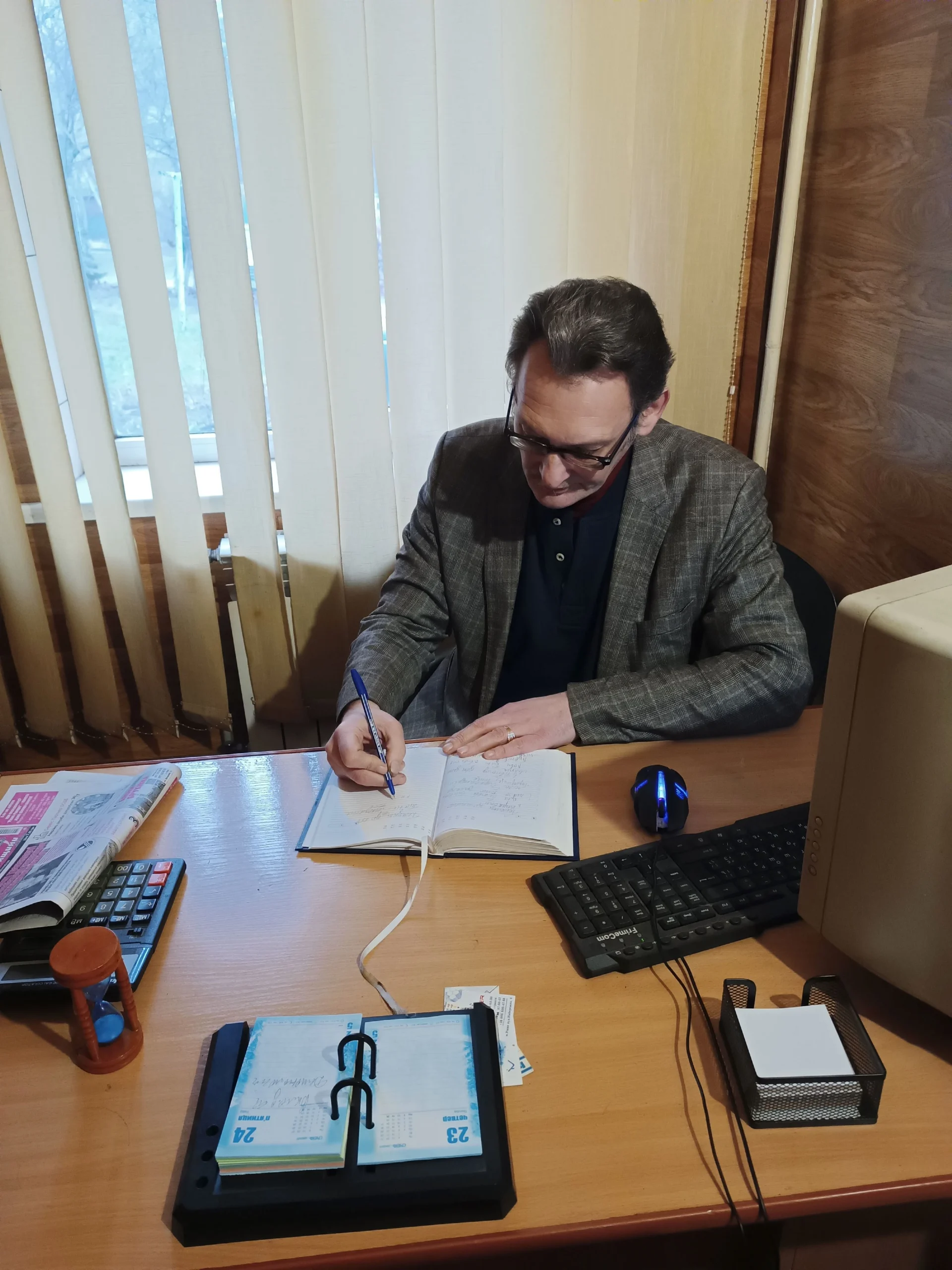“We Work for Those Who Are Searching”—An Interview with the Director of Rakurs Information and Advertising Agency (Rivne)
22 May 2024
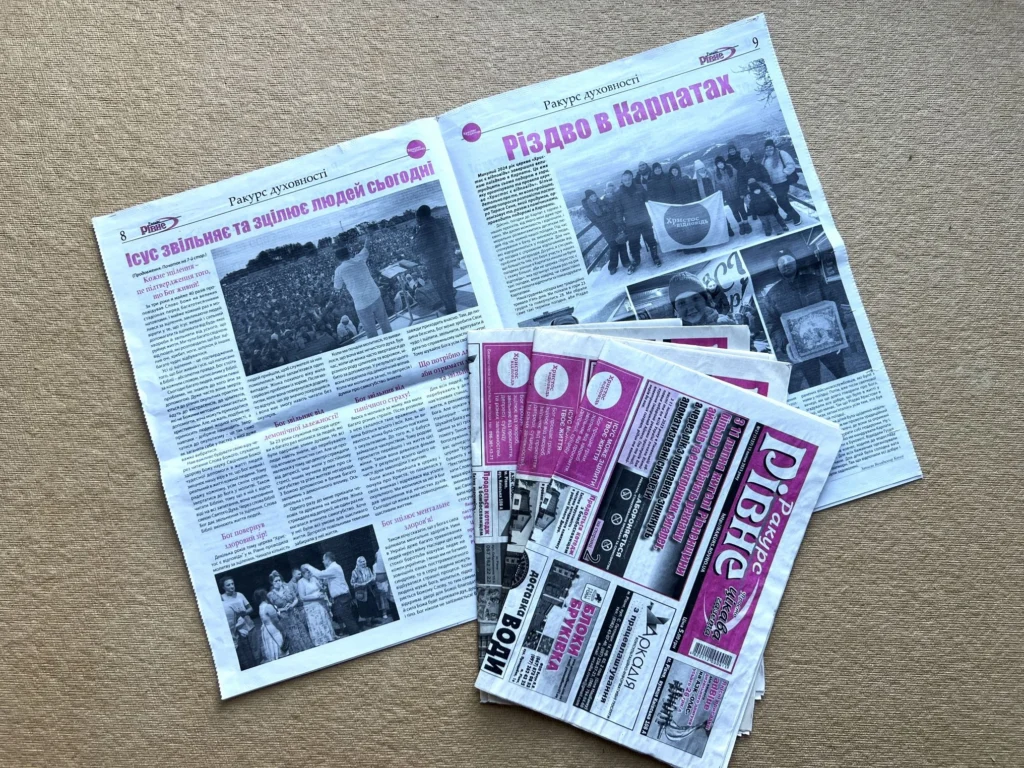
Four years ago, CITA Church in Rivne began working with Rakurs Information and Advertising Agency. News about the Christian community was published on the First Information Channel (pika.rv.ua) and in the newspaper “Rivne Rakurs.” Over time, a special supplement called “Rakurs of Spirituality” started appearing monthly in the weekly edition. We spoke with the director of the information agency and chief editor, Volodymyr Koniev, about the details of this collaboration.
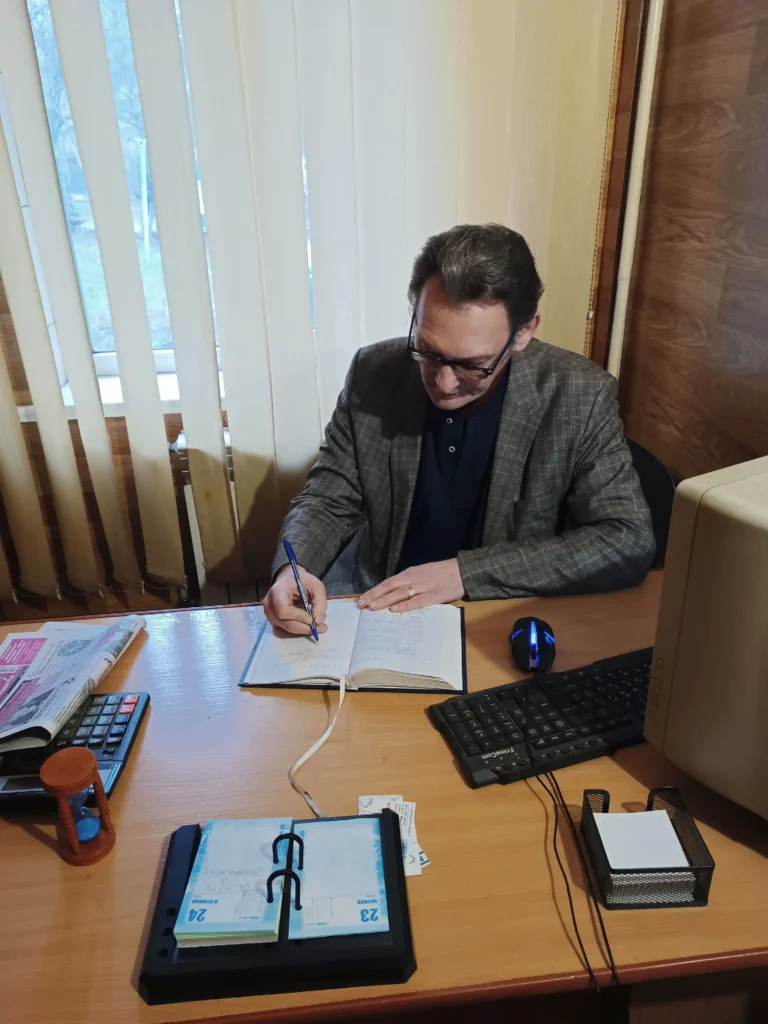
Volodymyr Leonidovych, how did the cooperation with the “Christ is the Answer” Church begin?
Our collaboration started quite a while ago. At first, we published occasional materials on our platforms. However, we had many discussions with Pastor Taras Sen. By the way, some of our staff even traveled to the Carpathian Mountains with CITA Church during a trip organized for Rivne media professionals.
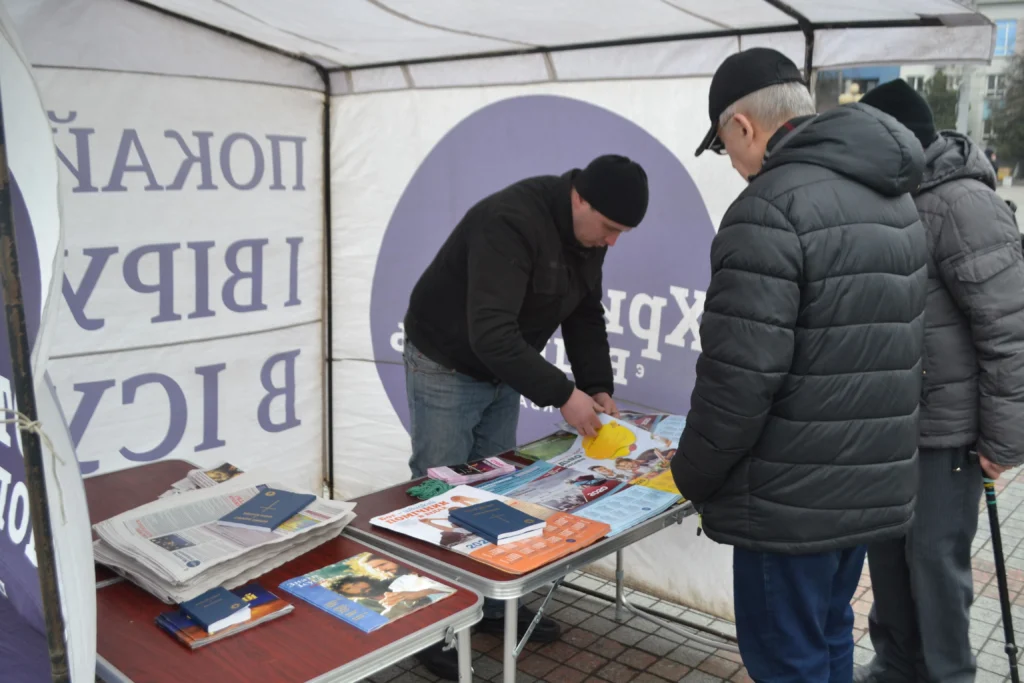
Through these conversations, a simple idea emerged. The church produces a lot of its own printed materials. Personally, I’ve picked up the “Christ is the Answer” newspaper multiple times at the tent they regularly set up in Rivne’s city center.
It’s important to note that every publication has two key aspects: its purpose and its target audience. That is, why it exists and who reads it. The “Christ is the Answer” newspaper is well-crafted and intended for people who attend church or might consider coming. To broaden its readership, we suggested printing a supplement in “Rivne Rakurs.” Perhaps some readers would discover God for themselves.
Tell us about the thematic content of the “Rakurs of Spirituality” supplement.
The topics generally fall into two broad categories. The first focuses on the diverse activities of CITA Church, including picnics, river rafting, trips to the Carpathians, and eye clinics. There’s plenty to write about.
The second category delves into discussions about God and faith, exploring the perspectives of scholars, writers, and other notable figures. Why do we write about this? Because we want to show that God and faith are far deeper and more profound than people often realize.
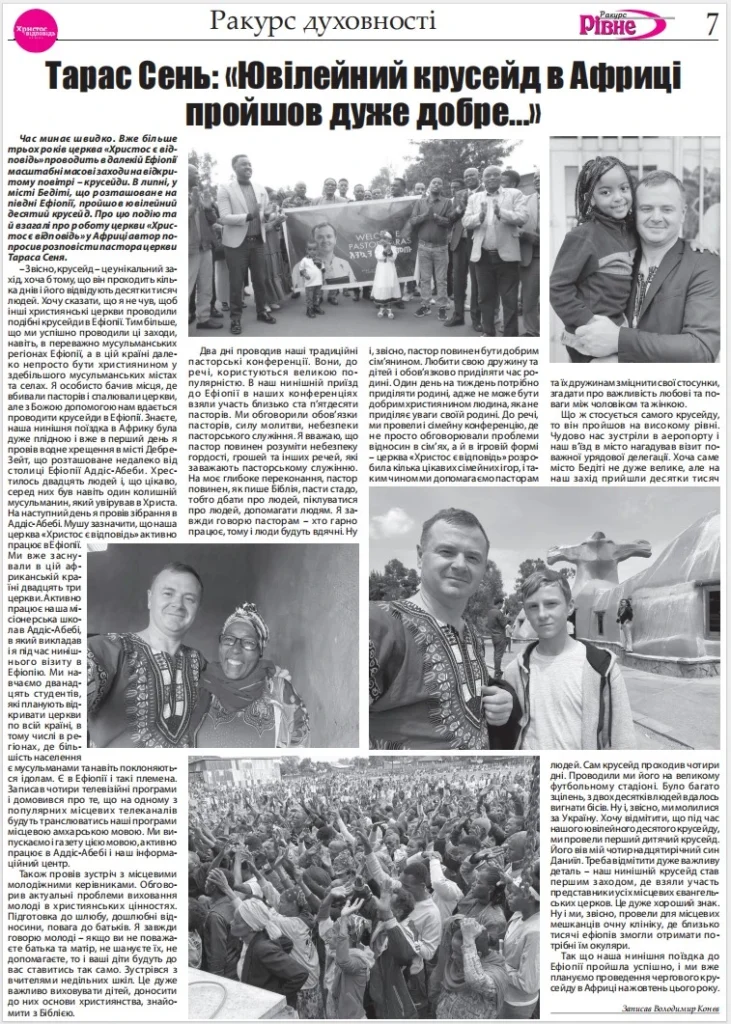
Unfortunately, many people don’t know the Bible. This is a serious issue. Recently, I encountered an unsettling situation. In one of my eight-year-old daughter’s schoolbooks, I noticed content promoting Native Ukrainian National Faith, a neo-pagan religious movement. Why would such material be included in a first-grade textbook? I understand that children absorb information like sponges, but imposing beliefs that are foreign to our culture is concerning. Sadly, such cases are common.
That’s why we strive to share what truly matters—God. We work for those who are seeking.
Last summer, “Rakurs of Spirituality” published an article about demonology. Why do you think this topic is relevant for “Rivne Rakurs” readers?
There have always been various kinds of sorcerers and occult practitioners. In the early 1990s, they were everywhere, and the situation hasn’t changed much. Society is going through a tough time—first the pandemic, now full-scale war. These are intense psychological challenges, and many people seek support, but not always in the right places.
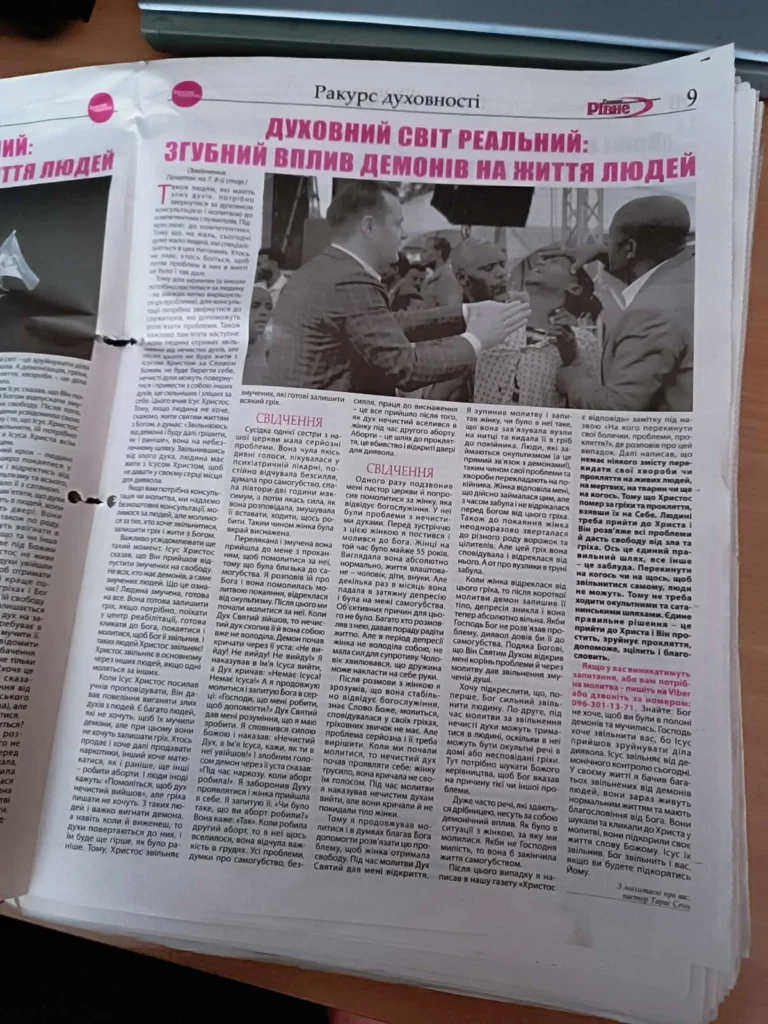
Unfortunately, demonology is a painful issue, especially during wartime. People grasp at anything for hope. I’ve noticed a rise in negative mysticism, even among soldiers. It’s common to see Scandinavian runic symbols, but these are not Christian symbols. They belong to Viking-era pagan traditions. But who were the Vikings? They weren’t just regional inhabitants; they were outcasts from various territories, banding together to form raiding parties. Their worldview was built around a dangerous death cult. A true Viking was expected to die in battle—otherwise, he wasn’t considered a warrior. They consciously sought death. Why is this anti-Christian tradition so dangerous? Because it leads people to seek death, driven by demonic influences.
Even criminology acknowledges demonic influence. There’s a field of study called “crimes without motive,” where individuals commit murders with no logical reason. When interrogated, they often say, “I heard a voice telling me to do it.” How do you explain that rationally? Clearly, we are dealing with demonic forces.
The same applies to psychiatry. Many mental disorders have no medical explanation. I once interviewed the head doctor of our regional mental health center, and he shared that in over 40 years of practice, he had encountered many cases that defied medical reasoning.
Demonic influence is a real problem, yet society rarely discusses it. We believe in calling things by their true names and telling people the truth: if you feel tormented, seek the church, pray, and ask for help from a pastor.
What other topics do you think are most relevant today?
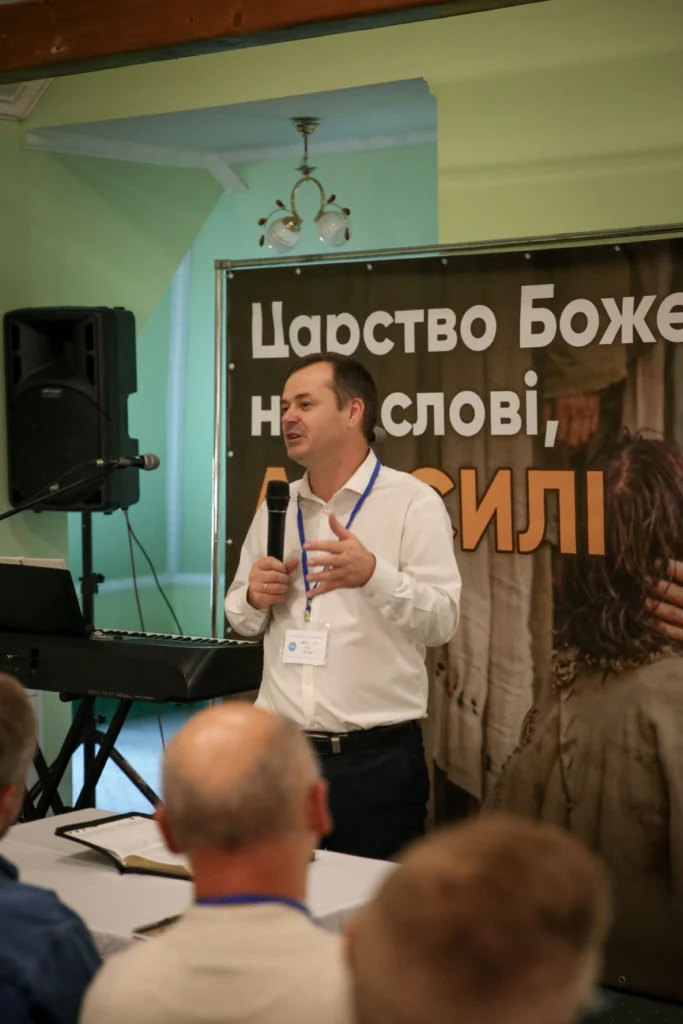
Pastor Taras Sen frequently speaks about family values, and I completely agree with him. A family consists of a father, a mother, and children. Christian family values form the foundation of society. We must keep discussing and reinforcing this truth to preserve our future.

Another important topic is Christian values. It’s not just about blessing Easter bread once a year. It’s a way of life—choosing good over evil. If you have the chance to do good, don’t hesitate. For example, if you’re a Christian and a builder, and you know your elderly neighbor’s roof is leaking, help fix it if you can. If you’re a good cook, prepare a meal for someone who might not have had a proper meal in a long time. CITA Church sets a great example in this regard.
Not everyone can afford a trip to the Carpathians, yet the church organizes charitable trips for those in need.
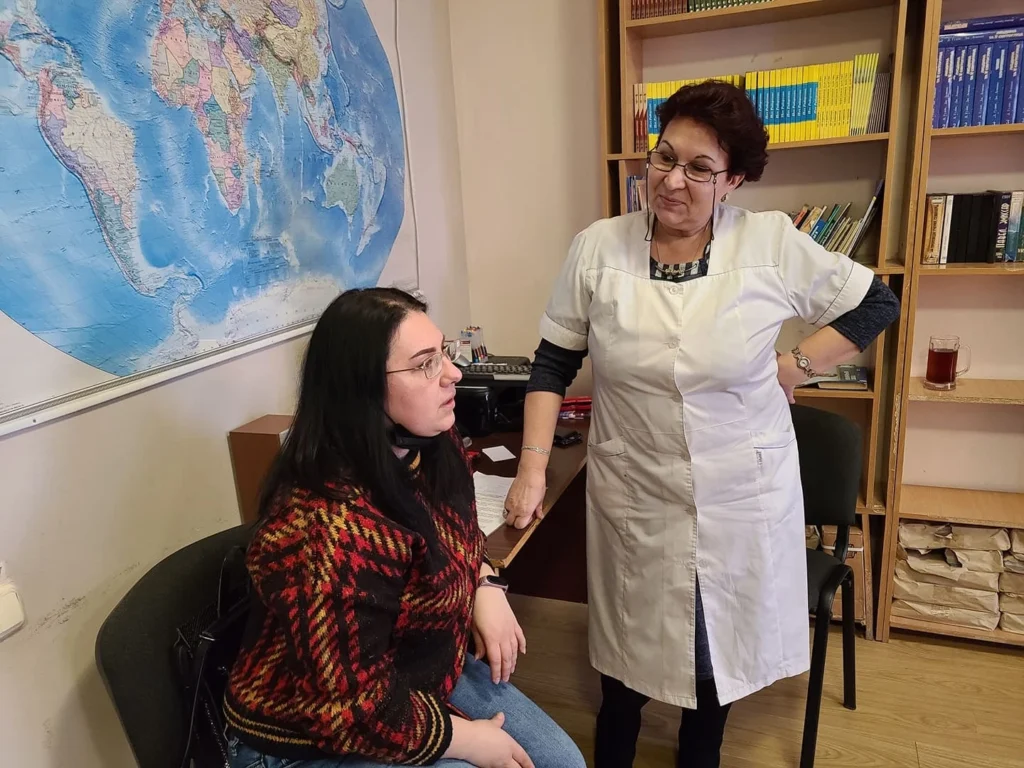
The eye clinics are another major social initiative. It’s not just about handing out glasses. Doctors provide full eye exams, consultations, and professional recommendations at no cost. This is a huge blessing, as many people can’t afford glasses or medical consultations.
Why is it important to discuss Christian values? Because they are the foundation of a fulfilling life—both for individuals and for an entire nation. History tells us that when Konrad Adenauer, the first Chancellor of West Germany (1949-1963), was drafting the country’s constitution, he told his colleagues: “Write the constitution with God in your hearts.” His vision played a crucial role in shaping Germany into an independent democratic state.
As an editor, I believe our cooperation with CITA Church is valuable because it presents Christianity in a way that is relatable, accessible, and understandable to everyone.
Thank you for the conversation!
Prepared by the Press Center of CITA Church.
